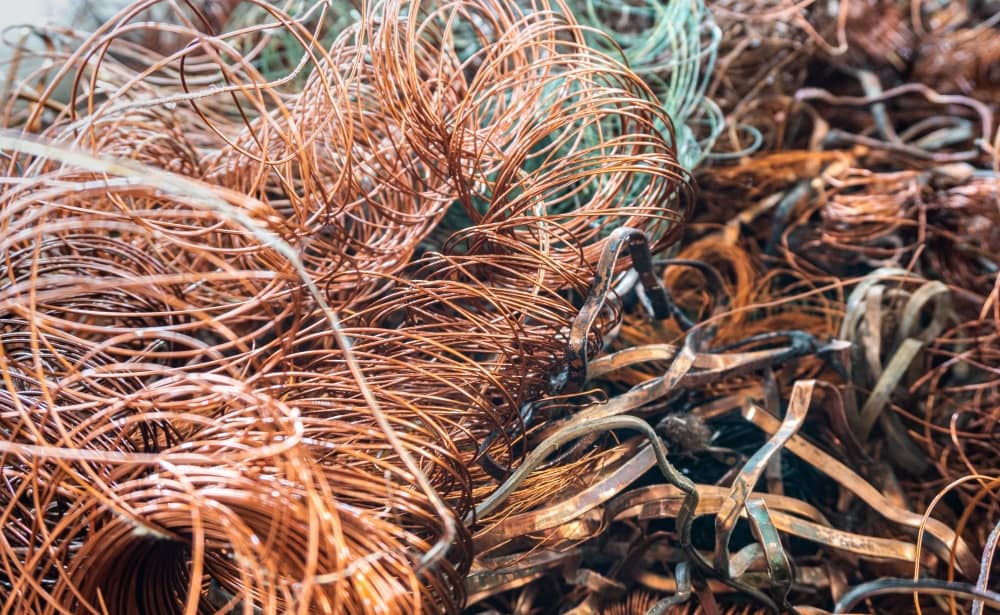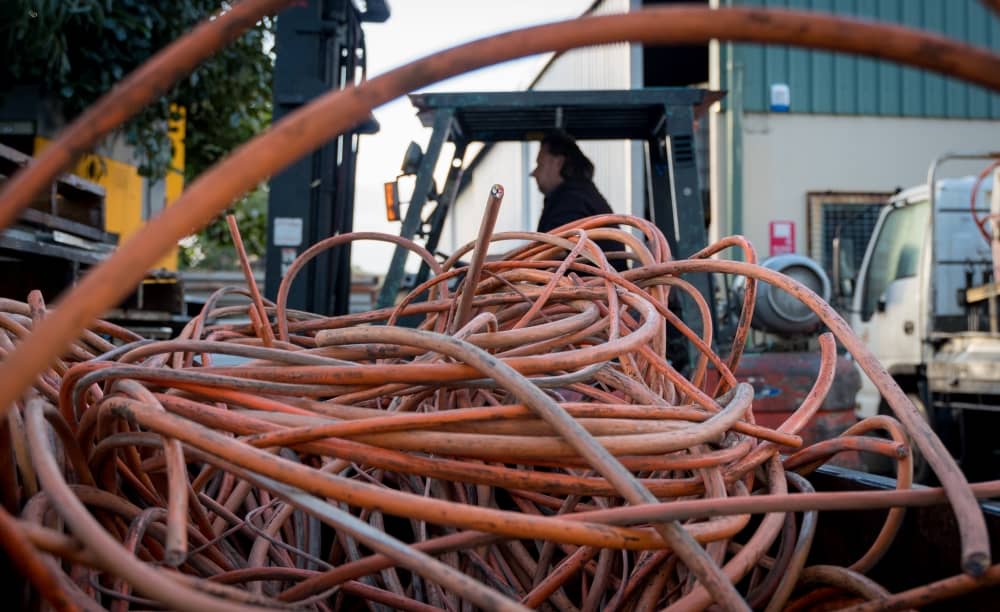Copper (Cu) is both a mineral and element present in our everyday lives. It’s everywhere, from your kitchen sink to benchtops to jewellery. A large car can have more than 45kg of copper. This material is valued for its excellence as a heat and electricity conductor. It’s malleable, ductile, and corrosion-resistant, as well.
These qualities are among the reasons why copper is one of the most used metals in the world, along with aluminium and iron. That’s why copper recycling is essential and valuable.
Copper wire recycling allows us to save energy, help the environment, and protect natural resources. Unfortunately, it’s not always easy. The recycling process can be complex but is generally made up of the following steps.
How is Copper Recycled?
1. Stripping
The first step is to strip the copper wire from its protective shielding, often in the form of plastic insulation. Since copper has high conductivity, it’s coated to protect cables and other items from this metal. For copper wire recycling, you need to remove this protective coating to begin the process.
Cut through the shielding before removing the wire from the insulation material. To finish this step faster, you can use wire stripping tools, such as an automatic wire stripper. If you only have a few copper wires, you can simply use a pair of scissors or a wire stripper. Make sure you remove all nuts, bolts, and nails before stripping.
2. Sorting
Once insulation and attachments are removed, it’s time to sort the copper wires. They will be treated according to their grades. The higher graded copper wires will typically be melted and recast without other treatments. Meanwhile, those with lower grades may require further processing, such as removing their impurities.
3. Quality Checking
The metal will then be sent to a recycling facility for a trained eye to inspect the quality of the wires. This additional step is to ensure that there are no contaminants before the wires are melted. In some cases, a granulator may be used, which will:
- Shred the metal
- Separate intertwined wires and thick cables
- Cut the copper wire into bits
A crusher may be used for cutting the wires into manageable sizes. It ensures that there are no unwanted materials when it’s time for melting them.
4. Melting
Once ensured that the materials are ready, copper wire recycling will continue with the melting process. The metal will be loaded into a furnace where it’s melted at 1084C and cast into a particular shape. It will then be left to cool. Once ready, it will be transformed into rods, wires, or sheets before sending the recycled metal into a plant for further manufacturing.
As you can see, copper has a very high melting point. That heat is intense, and therefore you should never attempt to do it on your own. Leave the job to the pros. We recommend that you only perform the first step mentioned above, in which you collect and strip the copper wires. After that, you can take the wires to a recycling facility, such as Collins Recycling.
Why Should You Care about Copper Wire Recycling?
Most of the copper products (roughly 75%) that you see around you are made from recycled copper. The only exception is wire production, which demands newly refined copper.
Like almost every metal known to metal, copper can be recycled infinitely. It will not degrade no matter how many times it has been recycled and reprocessed. And because recycling is kind to the planet, you’re helping reduce emissions and energy use compared to mining, milling, and smelting these virgin materials. That’s one sure-fire way to protect our natural resources.
Additionally, reusable copper will not sit and contribute to landfill waste. Copper recycling is also helpful to the economy since the recycled material is worth 80 to 90 per cent of the original copper cost.
Do You Want to Sell Scrap Copper in Perth?
Now that you know how copper wire recycling works and why it is necessary, you probably want to get involved in the process yourself. You surely have copper wires that you no longer need. Why not send them to us and get cash in exchange for your copper? Scrap metal prices vary, so take advantage of the high rewards while there’s still time.
As instructed above, make sure that you strip the copper wires first, removing their protective insulation. Then, gather and bundle them together as neatly as you can. Please drop them off at Collins Recycling, and you can get paid for your scrap copper wire. It’s that easy!
Speak to us at (08) 9457 3973 for more information about copper wire recycling and how we can help.









